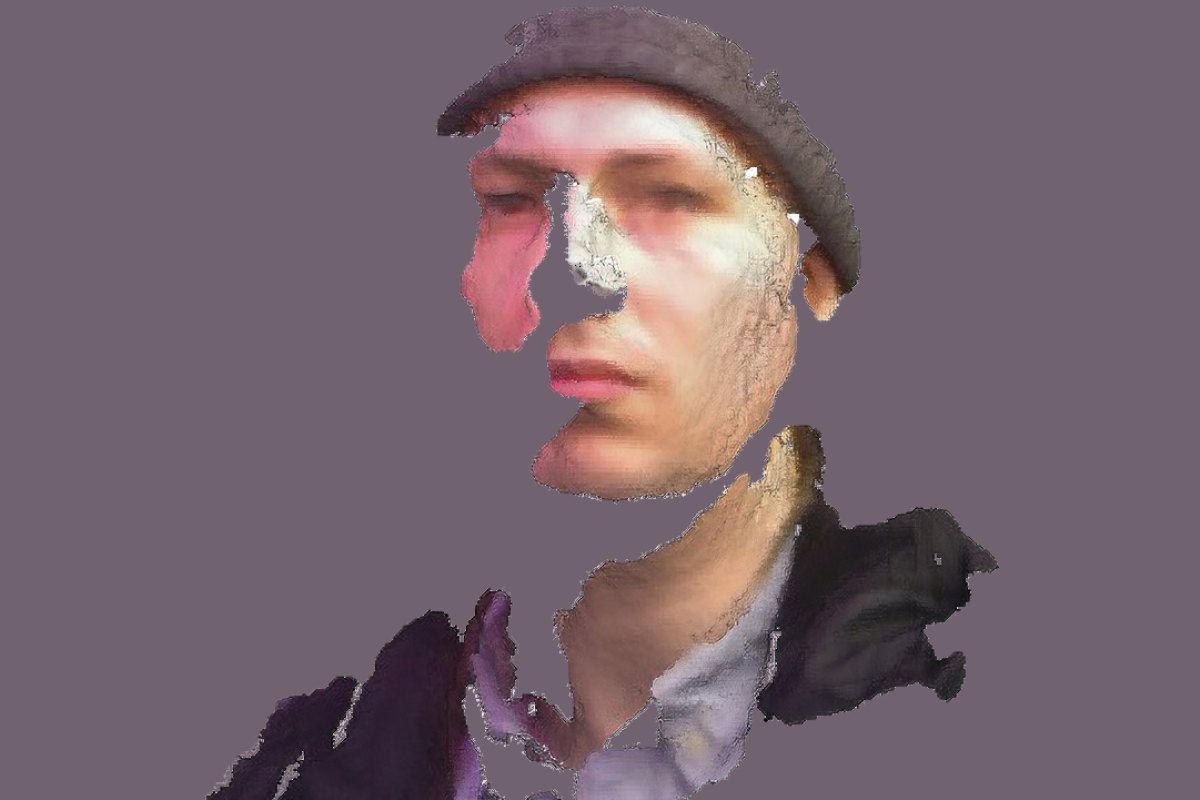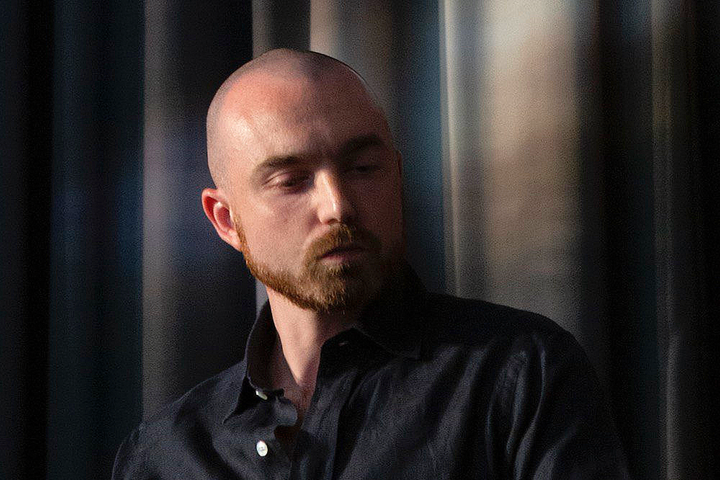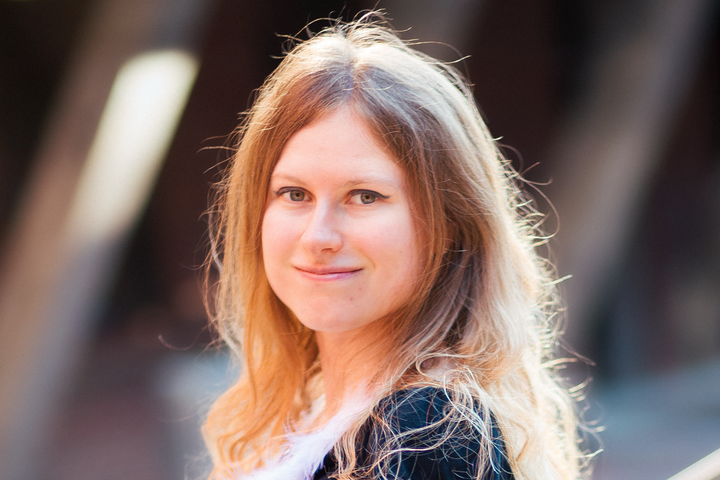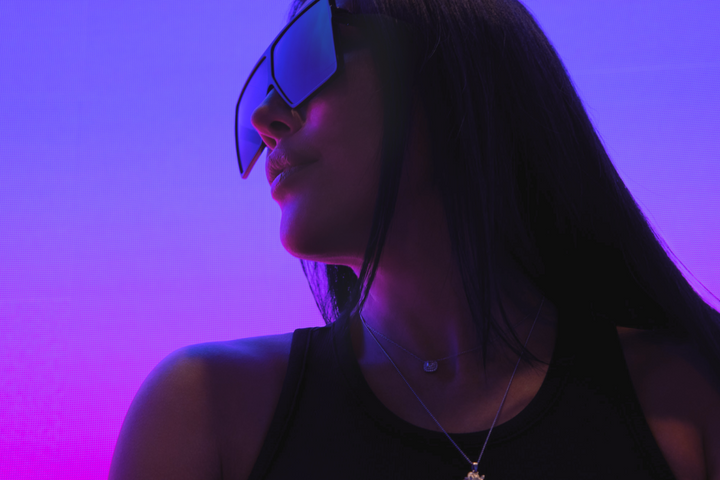Samuel Capps, DIY ethos, collaboration, and constantly learning new skills

Samuel Capps, artist and founder of Gossamer Fog, shares thoughts with Anne Duffau from The Curated about the DIY ethos, collaboration, and learning new skills.
Samuel Capps is an artist and runs the not-for-profit space Gossamer Fog, based in south London.
Hi, Sam. How would you introduce yourself, as an artist or a gallery director?
I definitely see myself as an artist rather than a gallery director. Gossamer Fog is much more like an experimental artist-run organization than anything else. We currently are in the process of making a second off-site space that will be set up as a virtual production studio, which should expand Gossamer Fog’s creative experimentation quite substantially.
Could you tell us about your practice and the space, how they are embedded, and how they form a kind of generative process?
The space has been going for about six years and occasionally it's a bit on and off (obviously, with COVID). Most of the time I program it, or other invited artists and curators present their projects. There have been slight pauses in the program when we needed to reorganize, reintegrate, and re-energize ourselves and get more funding in place. Generally the curatorial aspect plays off between my own art practice and research interests, although it can go the other way. I find it really interesting exploring ideas that I've been applying in my own work in a group show context as other people’s practice allows me to expand on ideas in different ways that I wouldn't necessarily approach in my own work. I find this a very enlightening way to approach subjects and highlight aspects that only a group context could do. This also works in reverse, where I thought of other ideas or avenues that I might not necessarily put in the show but that I might end up exploring in my own artwork.
In terms of your goals, there seem to be specific aesthetics and topics, from politics to forms and materials, that you touch on. From how you describe the gallery, you appear to nurture a specific ethos and interests for working and for using the space.
In terms of the ethos it's definitely DIY. The gallery itself and the physical location has been a long-term project and it's slowly getting more polished every year, but generally it doesn't look like a project space. I try to make it look quite sharp and present it like a high spec gallery. It's very experimental in terms of how it works. A lot of our projects were not necessarily exhibitions but wider things that could be considered as cross-disciplinary between my own art practice and that of a curator and director. So it's not even like I’m an artist, more that I act as a creative curator to produce an extra layer on top of an exhibition. We are now setting up a virtual production studio, which is going to be a second site on the side of the gallery. It will allow us to use Unreal Engine, which I employ quite a lot in my own practice and through the gallery, in order to have virtual sets and to have tracks of cameras for 3D renders. We will also do livestreams and physical performances with part-virtual and part-physical sets. So that will be a very collaborative thing between multiple artists. I will be curating the program, but also be artistic and have a technical input. It's definitely blurring the boundaries of my role within the gallery.
This is really exciting because it is merging that idea of Cyberspace London, the sharing of skills, but here the virtual is the central medium and you are making it accessible, including various creatives, and making it public.
Well, as it will be a new virtual production studio with quite cutting-edge technology, it will blend a lot of physical artwork and processes with digital ones, creating a blurred boundary there's quite hard to notice - this is something that I’ve been interested in a lot in my own practice. Through the new studio we will be operating workshops for artists to introduce them to these new ways of filmmaking and performance and to show how virtual production works.
What are your views on NFTs, the pros and cons?
It’s still very early days. Obviously, there was the initial hype, which was at the peak of the crypto market. I think it's got a long way to go. That's not what I enjoy, though. I've seen a couple of projects that are definitely a bit more experimental in how they use the idea of the NFT rather than just making an image and having a digital certificate for an image of an existing physical work. There are definitely more interesting ways that artists can play with and apply the technology. We're right at the beginning. So, I'm excited about it. If we compare it to the beginning of film making, that took decades to evolve. But I think this process will be a lot faster. Within the next few years we will see some interesting people doing some great things with it.
In terms of the funding of the space, could you tell us a little more about the process?
Well, funding is one thing that’s hard to get and fundraising always becomes a bit of a job in itself, especially when you’re applying for larger amounts. But it is one of the only ways you can survive as a non-profit space. For a while I was mining Ethereum, so that did help with funding some new avenues within the organization. We may register as a charity in the future, because at the moment we are a community interest company, a non-profit, but as a charity you can apply for a lot more different grants and funding.
Are you thinking of selling works or representing artists?
I'm not so interested in that. I mean, if people want to buy something I don't have anything against it, but representing people or relying on sales is a bit of a dangerous model for a gallery in my eyes. You see quite a lot of boring things that are pushed because of their commercial nature and that doesn't really lend itself to people making exciting work, especially in the digital world. There are new digital technologies and digital artworks, processes and workflows being made that, in themselves, don't necessarily fit well in the commercial world. There are other models, and definitely more Web3 kind of models, out there for people: small subscription-based things or the kind of communities that are building arts organizations.
Thank you. I know you have collaborated with institutions, festivals, and biennials. How do you navigate these different worlds and how were these experiences for you?
Most of the projects we've done have not been too troublesome, to be honest. Maybe things take a bit longer or are a slower process, but they've always been quite pain-free. For example, we took part in the Glasgow International Festival, and that was more like a collaboration and generally enjoyable. It was a lot of work and a lot of logistics as well, but we had a great time.
And It looked amazing. I remember walking into that space and feeling: wow, a little bit like being swallowed by a monster or entering its cave! We did mention your interest in a specific aesthetic, but maybe there's something about it we could try to define. You might have coined a term for it, because it is specific to an era, perhaps a contemporary gothic. But also very liquid digital / glossy / organic.
I know what you mean. I don't think anyone's really coined it yet. There have been a couple of attempts that have fallen by the wayside. I have considered writing something myself as much of the gallery’s writing and curation branches off from this very specific aesthetic that you're talking about.
And rave as well. Like a nineties / acid rave.
Yeah. It's something that probably does need addressing in terms of a direct kind of cultural movement. I'm not sure if it's been coined completely correctly yet, but I guess there's still time. It maybe needs someone from the outside.
And finally, do you have any practical advice to give to younger artists and curators?
I guess embracing the DIY ethos and learning as many skills as possible. I worked in Universities where some of the curators and artists didn't know how to put something on the wall or use a drill. Those are basic things that most people do learn, but if you're talking about someone who is just starting out then these kinds of skills are really useful and can save money. Learning technician skills means you don't need to pay someone to do it. And overall, attempting to learn new things is essential, right? I believe in this kind of ethos where anything can be learned. It’s about trying and not giving up at the first hurdle. Just keep attempting something. You're going to get good at it eventually and then you've got a new skill and the more of those you have, the easier it is to produce things yourself.
That's really positive. And that way, you are in control and can test out and experiment with new skills. Thank you so much, Sam.
No problem, thank you.



